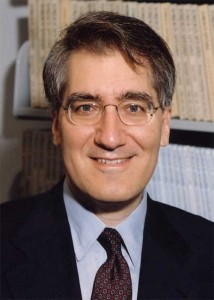“America’s Blessings: How Religion Benefits Everyone, Including Atheists” is outstanding; it’s the book most anti-religion pundits don’t  want you to read.
want you to read.
Once again, it was a delight to speak with Dr. Rodney Stark about this subject. He is one of the leading authorities on the sociology of religion. The Distinguished Professor of the Social Sciences and co-director of the Institute for Studies of Religion at Baylor University, Dr. Stark has broken open for us a wealth of studies, polls, and data that indicate the tremendous benefits organized religion has had on the United States of America. He also presents, in his uniquely authentic style, the dangers of taking this blessing for granted.
Podcast: Play in new window | Download (Duration: 27:59 — 25.6MB) | Embed
Subscribe: Apple Podcasts | Spotify | Amazon Music | Android | Pandora | iHeartRadio | JioSaavn | Podchaser | Gaana | Podcast Index | Email | TuneIn | Deezer | Anghami | RSS | More
You can find the book here
From the description:
Starting with a historical overview, Stark traces America’s religious roots from the founding of the country up through the present day, showing that religiosity in America has never been consistent, static, or monolithic. Interestingly, he finds that religious practice is now more prevalent than ever in America, despite any claims to the contrary. From here, Stark devotes whole chapters to unpacking the latest research on how religion affects different facets of modern American life, including crime, family life, sexuality, mental and physical health, sophistication, charity, and overall prosperity. The cumulative effect is that when translated into comparisons with western European nations, the United States comes out on top again and again. Thanks in no small part to America’s rich religious culture, the nation has far lower crime rates, much higher levels of charitable giving, better health, stronger marriages, and less suicide, to note only a few of the benefits.
In the final chapter, Stark assesses the financial impact of these religious realities. It turns out that belief benefits the American economy—and all 300 million citizens, believer and nonbeliever alike—by a conservative estimate of $2.6 trillion a year. Despite the atheist outcry against religion, the remarkable conclusion is clear: all Americans, from the most religious among us to our secular neighbors, really ought to count our blessings.











